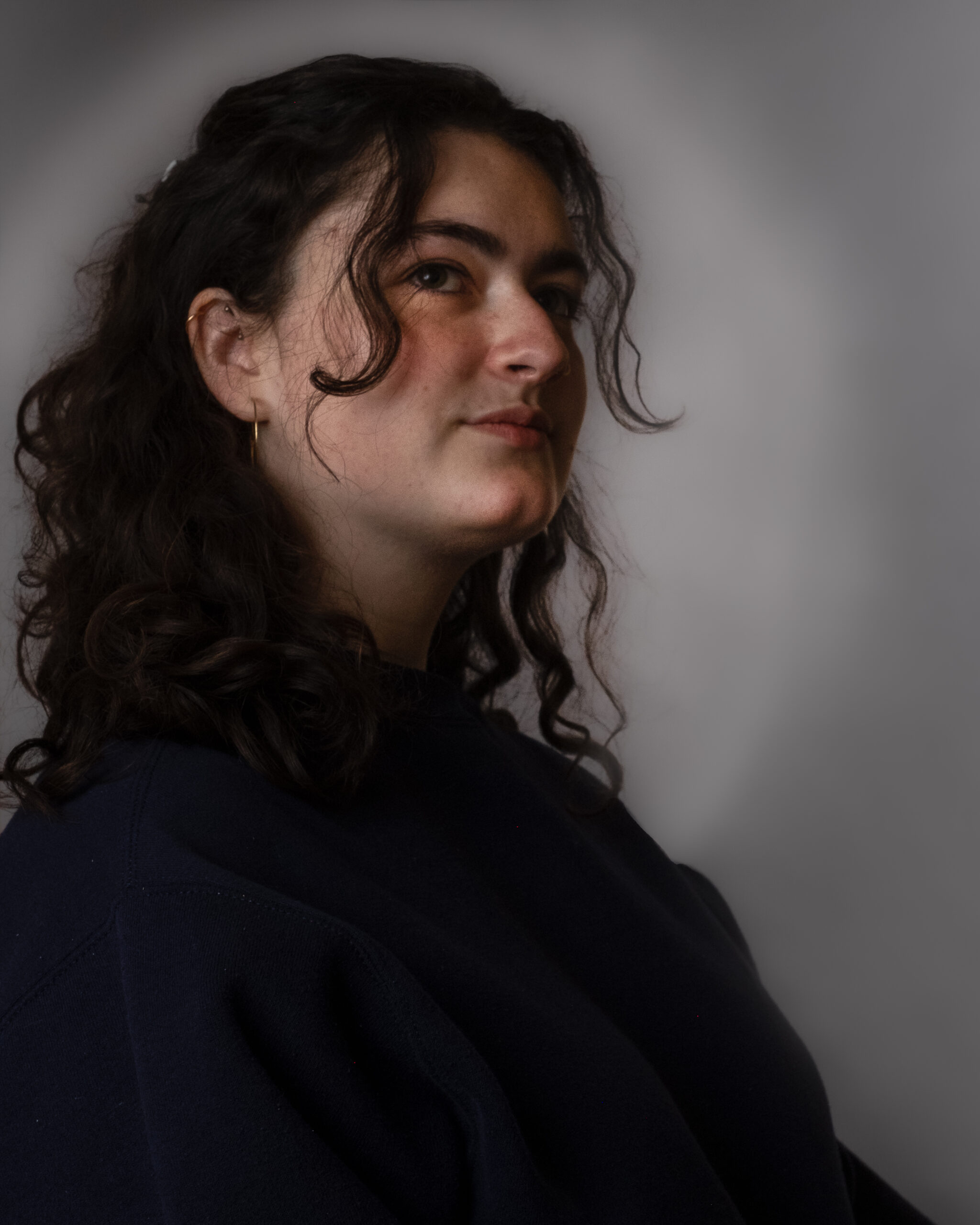Rae Blackbird (she/her)

Title: Class of 2025
“Growing up, I didn’t consider myself Jewish beyond the idea that I was a ‘Jew’, and I saw it kind of as a negative thing. But Judaism is a really beautiful part of my life now, and a lot of that comes from connecting with my family and with the community and practicing traditions that I get to claim as my own. My dad grew up in New York with an Orthodox, or very conservative, Jewish family from Eastern Europe that placed a strong emphasis on conformity. My dad was not at all about that. When they turned 20, they moved across the country to Portland, vowing to never go back to that sort of community. Because of my dad’s experience, my brothers and I were raised with the idea that we were ‘Jews,’ but only with a negative connotation and without any experience with the community or traditions.
When I came to college, I knew that I wanted to learn more about Judaism. I was astonished to find that there was a Jewish student center, and I felt apprehensive about meeting other Jewish people because I’d never been in a Jewish setting before. My first in-person Shabbat (at Berkeley Hillel), was the first time in my life that I experienced being Jewish in a positive light. Even though I had no idea what I was doing with the Siddur or anything, seeing people who staunchly and joyfully practiced Judaism was transformative for how I view being Jewish. Since then, I’ve evolved and experienced a great breadth of Jewishness. But I’m definitely still figuring out the role Judaism plays in my everyday life.
This past summer, I studied Torah for 20 hours a week in Jerusalem at the Pardes Institute, and I visited the Western Wall for the first time. When I touched the Wall with the Siddur in my hand, I felt like I was gaining physical access to something that I’d been afraid to access for a long time. That experience, and that summer, taught me that I can embrace my Jewish identity in a lot of ways that aren’t explicitly Jewish. I embrace my Judaism with my love of learning, my work ethic, in appreciating the holiness of rest, in the grind, and seeing the complexities of human nature, including, the complicated relationship between the intersection of my identities and American Jewry.
In most interactions and social situations, my whiteness will, arguably always, come before my Judaism. And being a young, Jewish, queer, white, American, something I’ve experienced in groups that I’ve been a part of is Jews with white privilege, or white, queer people hiding behind their non-white identity to avoid grappling with their white privilege. This might sound like, ‘Oh, well, I can’t have white privilege because I am a Jew.’ Or, ‘I can’t perpetuate oppression because I’m queer.’ And that’s not how it works. It’s not like math. I think there should be more discussion of race in Jewish spaces. And that should not fall only on Jews of color. It’s important that we talk more and more frankly, and talk about where we are coming from, everyone, not just Jewish people, so that we can understand how our identities affect how we show up in the world.
I’m at a place now that I’m very grateful and proud to be Jewish, with all of the confusing and complicated and human lessons it has to teach me.”
